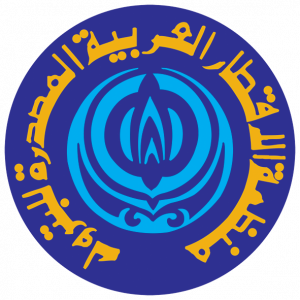
Organization of Arab Petroleum Exporting Countries (OAPEC)
Organisation des pays arabes exportateurs de pétrole (OPAEP)
Organización de Paises Arabes Exportadores de Petróleo (OPAEP)
Search Open Yearbook
This information is part of the Open Yearbook, a free service of UIA's subscription-based Yearbook of International Organizations (YBIO). It includes profiles of non-profit organizations working worldwide in all fields of activity. The information contained in the profiles and search functionality of this free service are limited.
The full-featured Yearbook of International Organizations (YBIO) includes over 77,500 organization profiles, additional information in the profiles, sophisticated search functionality and data export. For more information about YBIO, please click here or contact us.
The UIA is a leading provider of information about international non-profit organizations. The aim of the Open Yearbook is to promote the activities of international non-governmental organizations (INGOs) and intergovernmental organizations (IGOs).
Contact Details
URL: https://www.oapecorg.org/
Founded
1968-01-09
History
Available with paid subscription only.Aims
Coordinate efforts and encourage cooperation among member countries in the various forms of economic activity in the petroleum industry; undertake research into production and manpower requirements in Arab petroleum projects; establish a central research and documentation system. Promote and coordinate activities leading to: development of petroleum industry infrastructure in Arab countries; establishment of joint ventures in the Arab oil industry; dissemination of information on energy and economics.
Events
2027 | Riyadh, Saudi Arabia – Arab Energy Conference69 past events available with paid subscription only.
Activities
Available with paid subscription only.Structure
Available with paid subscription only.Languages
Available with paid subscription only.Staff
Available with paid subscription only.Annual Budget
Available with paid subscription only.Finance
Available with paid subscription only.Relations with Inter-Governmental Organizations
Collaborative Arab organization of: D-XD5526 - Arab Organization for Agricultural Development (AOAD). Cooperation agreement with: B-XB1117 - International Maritime Organization (IMO). Accredited by: E-XK1561 - United Nations Framework Convention on Climate Change - Secretariat (UNFCCC). Invited to sessions of Intergovernmental Council of: F-XE2379 - International Programme for the Development of Communication (IPDC). Links with:
- F-XF2177 - Arab Investment and Export Credit Guarantee Corporation (DHAMAN);
- E-XE7392 - Arab Planning Institute (API);
- E-XE2442 - European Commission (EC);
- D-XD9187 - Gulf Cooperation Council (GCC);
- D-XD6633 - Gulf Organization for Industrial Consulting (GOIC);
- F-XF1393 - International Bank for Reconstruction and Development (IBRD);
- F-XF2266 - International Monetary Fund (IMF);
- F-XF4542 - Islamic Development Bank (IsDB);
- D-XD5835 - Latin American Energy Organization;
- E-XE0816 - Nuclear Energy Agency (NEA);
- C-XC3023 - OECD;
- C-XC3038 - Organization of the Petroleum Exporting Countries (OPEC);
- D-XD0319 - Regional Organization for the Protection of the Marine Environment (ROPME);
- E-XE4161 - UNEP;
- E-XE3381 - UNCTAD;
- E-XE3382 - UNDP;
- B-XB3383 - UNESCO;
- B-XE3386 - UNIDO;
- E-XE4176 - United Nations Economic Commission for Europe (UNECE);
- E-XE4178 - United Nations Economic and Social Commission for Western Asia (ESCWA);
- D-XD1632 - African Petroleum Producers's Organization (APPO).
Relations with Non-Governmental Organizations
In liaison with technical committees of: B-XB2314 - International Organization for Standardization (ISO). Links with: B-XB1490 - International Chamber of Commerce (ICC); B-XB3510 - World Energy Council (WEC).
Publications
Available with paid subscription only.Members
Available with paid subscription only.Type I Classification
Available with paid subscription only.Type II Classification
Available with paid subscription only.Subjects *
UN Sustainable Development Goals **
UIA Org ID
XD0064
** UN SDGs are linked to the subject classification.
← return to your search page to find additional profiles.
UIA allows users to access and make use of the information contained in its Databases for the user’s internal use and evaluation purposes only. A user may not re-package, compile, re-distribute or re-use any or all of the UIA Databases or the data* contained therein without prior permission from the UIA.
Data from database resources may not be extracted or downloaded in bulk using automated scripts or other external software tools not provided within the database resources themselves. If your research project or use of a database resource will involve the extraction of large amounts of text or data from a database resource, please contact us for a customized solution.
UIA reserves the right to block access for abusive use of the Database.
* Data shall mean any data and information available in the Database including but not limited to: raw data, numbers, images, names and contact information, logos, text, keywords, and links.